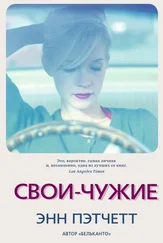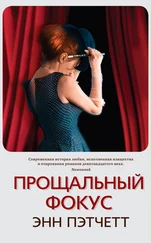“What?” Celeste asked, and then she said, “No. Wait a minute. It’s your father. Here.” She was talking to me again. “Say hello to your daughter.”
“Hi, Daddy,” May said. “If you don’t come home soon I’m going to get a hypoallergenic dog. I’m thinking about a standard poodle. I’m going to call her Stella. I’d settle for a cat but Mom says there is no such thing as a hypoallergenic cat. She says Kevin is allergic to cats but how would she even know? He’s never around cats.”
“What are you talking about?”
“Wait a minute,” May said in a low voice, and then I heard a door close. “Whenever I talk about getting a dog she leaves the room. It’s like a magic trick. I’m coming to Jenkintown to see Aunt Maeve.”
“Is your mother bringing you?”
May made the sound she used to cover all manner of adult idiocy. “I’m coming by myself. You’re going to have to pick me up at the train.”
“You’re not coming on the train by yourself.” We didn’t let May ride the subway by herself. We let her ride buses and take taxis but not trains of any stripe.
“Listen, Aunt Maeve’s had a heart attack,” she said, breaking the news. “You know she’s wondering why I haven’t been to see her yet. And Mom told us about our Indian grandmother being home, and I want to meet her. It’s a pretty big deal, finding a new grandmother at this stage of the game.”
What stage of the game? “She’s not Indian.” I looked out of the kitchen at my pale Irish mother on the couch next to Maeve, then turned my back on them both. “She used to live in India but it was a long time ago.”
“Either way I’m taking the train. You took the train alone from New York when you were twelve after you went to see Aunt Maeve for Easter, and I’m fourteen for god’s sake.”
“I hate it when you say god’s sake. You sound like my father.”
“Girls mature faster than boys, so when you think about it I’m technically more than two years older now than you were then.”
Had I really told her that story? Of course May was older than I was then, probably by twenty years, but there was no way I was going to let her get on a train by herself. “It’s a nice idea, but I’m coming home tomorrow after I take Maeve to the doctor.”
“You are a doctor,” she said, cracking herself up.
“Listen, May, be kind to your mother.”
“I am ,” she said. “But she’s driving me bananas. I’m going to write a book called Six Million Reasons Not to Go to Pennsylvania . Let me say hello to my grandmother.”
My mother had not asked about my children. Not a word. Fluffy said that was because she had already told my mother all about them, so had Maeve—Kevin’s grades in science, May’s dancing. Fluffy said my mother was desperate to know, and that it was my own fault she didn’t ask me because I went out of my way to layer frost onto every sentence that came out of my mouth. “She’s asleep,” I said.
“Why is she asleep? It’s two o’clock. She’s not the one who’s sick.”
“She’s the one who’s old,” I said, turning again to look at my mother in the other room. She was laughing. With her short hair and weathered skin and freckled hands she could have been anyone’s mother, but she was mine. “I’ll tell her you called when she wakes up.”
For as many places as our mother claimed to have been during her years of absence, there was no indication that she actually lived in any one of them. I wondered if she lived at Maeve’s now because her suitcase was in Maeve’s closet. I regaled Celeste with all of my suspicions once I was home again, breaking down the last two weeks play by play.
“Are you saying she’s homeless?” Celeste asked. We were standing in the kitchen while she worked on dinner: salmon for the two of us and May, who didn’t like fish but had read that fish made you smarter, and two hamburgers for Kevin, who could have cared less. The children had been happy to see me when I first came through the door the day before but since had discovered that I was the same person they’d always known.
“Homeless insofar as she doesn’t have a home, not homeless like she’s sleeping under a bridge.” Though how would I know?
“Is there a chance your parents never got divorced? That’s what Fluffy thinks. She thinks your mother may still own the house and not even know it.”
I imagined Fluffy must have presented this as conjecture. She certainly wouldn’t have told the whole story to Celeste. “They’re divorced. My father paid a man from the American consulate to meet her ship in Bombay. He’d mailed the divorce papers and the man took my mother straight to the consulate and had her sign them in front of a notary. All very legal. The man with the divorce papers gave her a letter from my father as well, telling her to never come back. I think he took care of everything right on the spot.” This was one of the countless stories that had been told near me rather than to me, with Maeve saying that surely had the letter been a testament of love and compassion our mother would have marched straight up the gangplank and sailed home again. My mother allowed as how that would have been the case.
“Then she isn’t secretly rich.”
I shook my head. “She is flamboyantly poor.”
“And now the two of you are supposed to take care of her?” Celeste set to work on the little red potatoes in the sink, attacking each one with a scrub brush while I searched the refrigerator for an open bottle of wine.
“I’m not taking care of her.”
“But you’re taking care of Maeve, and Maeve will have to take care of her.”
I thought about this. I located the wine. “Well, for the time being my mother’s taking care of Maeve.” The food, the pills, the laundry, the visitors.
“What’s your part?”
I had been watching, that was my part. I had been inserting my uncomfortable presence into every situation. “I just want to make sure Maeve’s okay.”
“Because you’re afraid she’s going to have another heart attack or because you’re afraid she’s going to wind up liking your mother more than you?”
I had been about to pour us each a glass of wine but in light of the direction our conversation was going, I opted to pour one just for myself. “It’s not a competition.”
“Okay, that’s great, if it’s not a competition then leave them alone. You don’t seem very interested in your mother and Maeve seems to have eyes for no one else.”
I will mention here that Celeste had been remarkably thoughtful when Maeve was sick. She’d sent cards signed with love from the children every couple of days, and when Maeve went home there was an enormous bucket of peonies waiting on her front porch. There could not have been a peony left in all of Eastern Pennsylvania.
“You told Celeste I love peonies?” Maeve had asked me, looking at the card.
But the truth was I had no idea my sister loved peonies.
“Why are we arguing about this?” I asked Celeste. “I’m just glad to be home.”
She dropped the last of the potatoes back in the colander and dried her hands. “For as long as I’ve known Maeve, she’s wanted her mother back. You two park in front of the old homestead because it reminds her of her mother, you go through life like your wrists are bound together with wire because you were abandoned by your mother. And then your mother returns, and your sister, God love her, is finally happy, and you’re bent on being miserable. It’s like you don’t want to be dislodged from your suffering. If you care so much about Maeve, and Maeve’s happy, then why not just let her be happy? She can have a life with your mother, you can have a life with us.”
Читать дальше
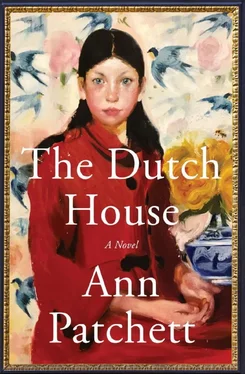
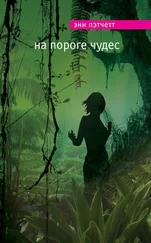

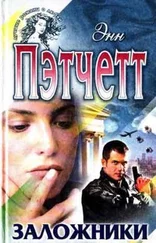
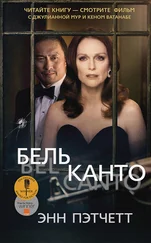
![Энн Пэтчетт - Прощальный фокус [litres]](/books/402782/enn-petchett-prochalnyj-fokus-litres-thumb.webp)
